Alumni 2022/23
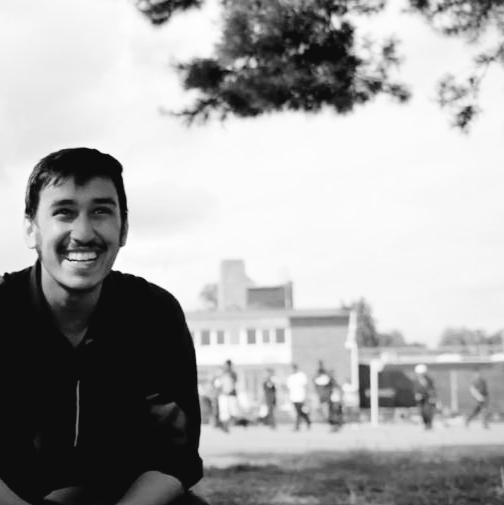
Name: Adnan Mahmud
Course: MEng in Engineering, University of Cambridge
Why did you apply for the fellowship? Growing up in the Indian Subcontinent (Bangladesh), I have tasted the sour fruit of the British Colonial past. After migrating to the UK for my undergraduate studies and observing the sheer absence of chapters in UK schools about their colonial past was shocking. Moreover, the peculiarity of the British political domain is as such that, on one hand, it wants to do right by its former colonies and talks about liberal values but in the very sentence flirts with divisive ideas of moving its Israeli embassy to Jerusalem.
Fundamentally these frustrations lead me to search for a platform where I can think about such problems in a systematic manner. That’s how I came across the Balfour Project. The core reason why I particularly applied to the Balfour Project is due to its pivotal emphasis on the British government’s role in the Israeli-Palestinian conflict. I believe an a priori step from any reasonable peace process is the revealing of this controversial past in its entirety.
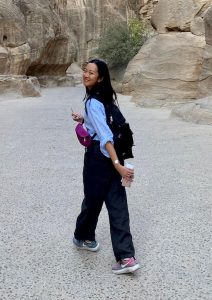
Name: Andrea Wong
Course: Postgraduate Diploma in Law, BPP University (current). Master in International Public Management, Sciences Po Paris (2019-2021).
Why did you apply for the fellowship? For me, the fellowship is primarily an opportunity to listen to and interact with people from different backgrounds who may hold different viewpoints, but share a common vision for lasting peace, justice, security and human rights for both Palestinians and Israelis.
Having studied diplomacy and worked on bilateral and multilateral policy matters in the Civil Service, I hope to further my interest in the role of British foreign policy in the Israeli-Palestinian peace processes. As an aspiring lawyer, I also look forward to the training on international law and learning about mechanisms of accountability.
Reflecting on my experiences as a British person of colour, I feel strongly that I, and others like me, have been let down by an education that did not adequately cover British colonial history and its legacy of structural racism. The Balfour Project’s focus on colonial accountability is therefore important to me personally, to how we perceive ourselves collectively, and to how we project ourselves as a ‘force of good’ in the world.
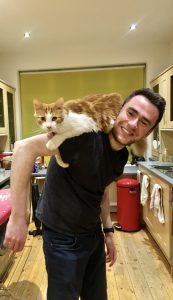
Name: Daniel Mautner
Course: MA by Research (Music), University of Huddersfield
Why did you apply for the fellowship? My most recent trip to Israel and the West Bank inspired me to take a more active role in peace advocacy work, perhaps even spending more time in the region. The fellowship scheme felt like the next logical step in seeing the conflict from outside my own lens, breaking down some of those biases, gaining useful skills, networking with like-minded people and understanding how I can further engage in peace advocacy work.
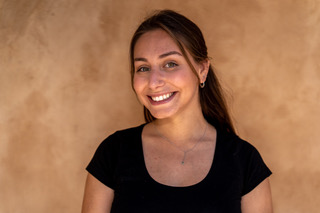
Name: Dina Gitlin-Leigh
Course: PGDL (Law Conversion), University of Law
Why did you apply for the fellowship? I applied for the Balfour Project Fellowship as I found through my engagement in dialogue in the region that the situation in Israel-Palestine was often being framed in a post-colonial context however, this awareness did not seem to translate to British communities back home. While learning about Israel-Palestine in the UK my experience was that there was little emphasis on Britain’s role and Palestine is often treated as a footnote in British colonial history. I therefore wanted to participate in the fellowship as a way of learning more about British involvement and to develop projects to spread an understanding of British connection with Israel-Palestine.
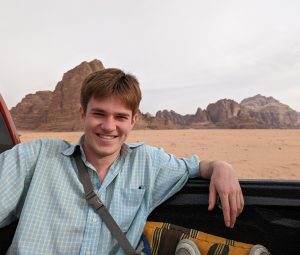
Name: Ethan Hadad
Course: BA Arabic with Subsidiary Persian, University of Oxford.
Why did you apply for the fellowship? Travelling in the region today, the remnants of British rule act are clear, if fading somewhat. A jumble of old police stations, railways, and street names belie a greater historical responsibility which I think the project is unique in addressing as an organisation.
On a personal level, I wanted to gain experience working on the conflict in a more organised and professional context, hopefully improving my own knowledge and skills in the various fields covered by the training programme, as well as challenging any misconceptions I might have. The fellowship’s capacity as a forum for discussion and communication in a largely polarised and toxic political environment was also appealing; I hope to be more equipped to challenge this by the end of the programme, regardless of what sector I end up in!
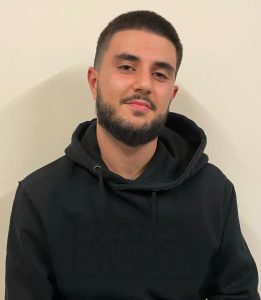
Name: Joe Haidar
Course: BA History, Queen Mary University of London
Why did you apply for the fellowship? Despite always growing up with a general knowledge of this conflict, I never felt confident enough to speak about it, as for a long time, I didn’t actually know much about the detailed and complex history and current political situation. Recently, I began to take a more active interest and when this project was sent into one of my university group chats, I was determined to apply for it. The project seemed perfect: it offered the opportunity to learn about this issue in detail, as well as making a positive and personalised contribution to finding a solution for an issue I feel so strongly about.
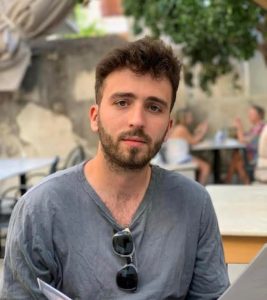
Name: Joel Stokes
Course: PhD at UCL’s Department of Hebrew and Jewish Studies and Institute of Archaeology
Why did you apply for the fellowship? I applied for the Fellowship because I believe the significance of the United Kingdom’s historic and current relationship with the representatives of Israeli and Palestinian elected bodies is misunderstood and underappreciated. Additionally, I believe that education and information about Israel-Palestine is, at present, too divisive. I am interested in exploring educative projects that add colour and texture to the otherwise black and white story of the region’s history. I look forward to working closely with the other fellows and to creating meaningful projects together.
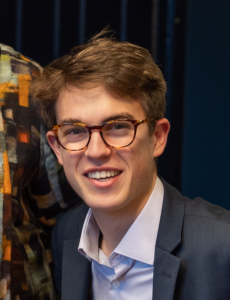
Name: Joseph Hearn
Course: MA in Middle Eastern Studies at SOAS, University of London
Why did you apply for the fellowship? I am drawn to the Balfour Project’s focus on British policies and attitudes towards Israel and Palestine, particularly given Britain’s historical role in the region. International pressure is a key tool to achieve a just peace and respect for human rights, so it is important to make the case for these in Britain. The Fellowship offers amazing opportunities for research and advocacy training with a supportive and diverse community of students and activists.
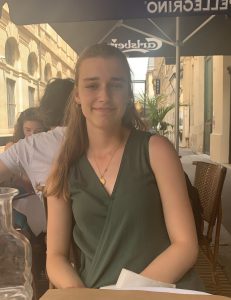
Name: Laura Bramall
Course: Bar Course at City, University of London
Why did you apply for the fellowship? I hope the fellowship will be a great chance for me to learn more not just about the Middle East, but also about international law and politics. As an aspiring barrister, I hope that I will learn from top advocates and activists. I am particularly interested in developing my own understanding of public international law so that I can become more effective at creating change. I think that as a British citizen, I have a responsibility to interrogate the UK Government’s actions. I can’t wait to work with the other fellows to try to tackle this challenge.
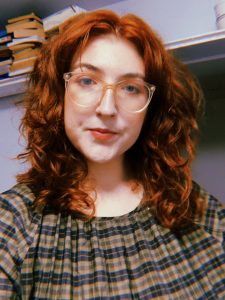
Name: Lucy Rebecca Cannon
Course: 1+3 MA in Social Research funded through the Midlands Graduate Doctoral School and ESRC, University of Warwick
Why did you apply for the fellowship? A former tutor who had taught me in a module on the occupation and whom I have kept in touch with through organising around Palestine reached out to me and told me to apply. One of my favourite parts about academia is getting to work with and meet other exciting scholars from various backgrounds. The opportunity the fellowship offers to listen to and learn with other excellent scholars and activists, particularly those with differing experiences is something I hope will challenge and further my interest and knowledge. This as well as my skills and ability to write and think with others.
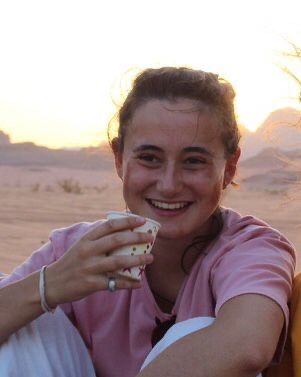
Name: Madeline Elmitt
Course: BA in Arabic, SOAS University of London
Why did you apply for the fellowship? I was asked an interesting question by a young Israeli near Beit She’an a few months ago which was; what do you know? It’s interesting to us to see how you (Brits) perceive what is going on here. My honest answer to him would be that I do not know the general British understanding of the realities of this region. I do, however, notice the general lack of focus and concern around the ecological, political, and social impacts of the ongoing conflict. The Balfour Project represents for me and others a catalyst for discussion and continued interest in the region whilst I finish my studies in the UK. I would also like to use the Fellowship to develop my research skills in the ecological repercussions of the conflict as disruption to the natural habitat increases and resources such as dwindling water supplies become increasingly political tools in the region.
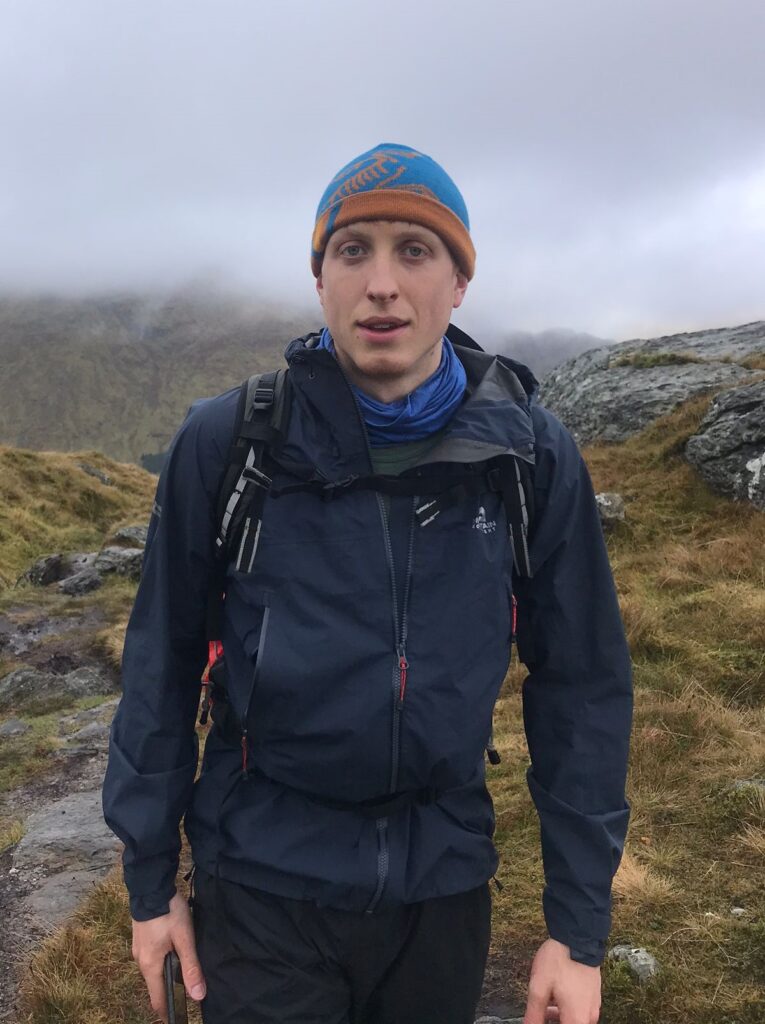
Name: Matthew Holt
Course: MSc Global Environment Politics and Society, University of Edinburgh
Why did you apply for the fellowship? It is often difficult to engage with global issues in ways that feel meaningful. The Balfour Project marked an opportunity to contribute to peace-building through a project with tangible results. Whilst I was intrigued by the project’s commitment to Britain’s historic and continued involvement in the conflict, hearing about the incredible projects run by previous fellows inspired me to apply. The project’s focus on skills development, from public speaking to international law workshops, was an attractive aspect of the fellowship as I’m looking to work in organisations concerned with peace-building in the future.
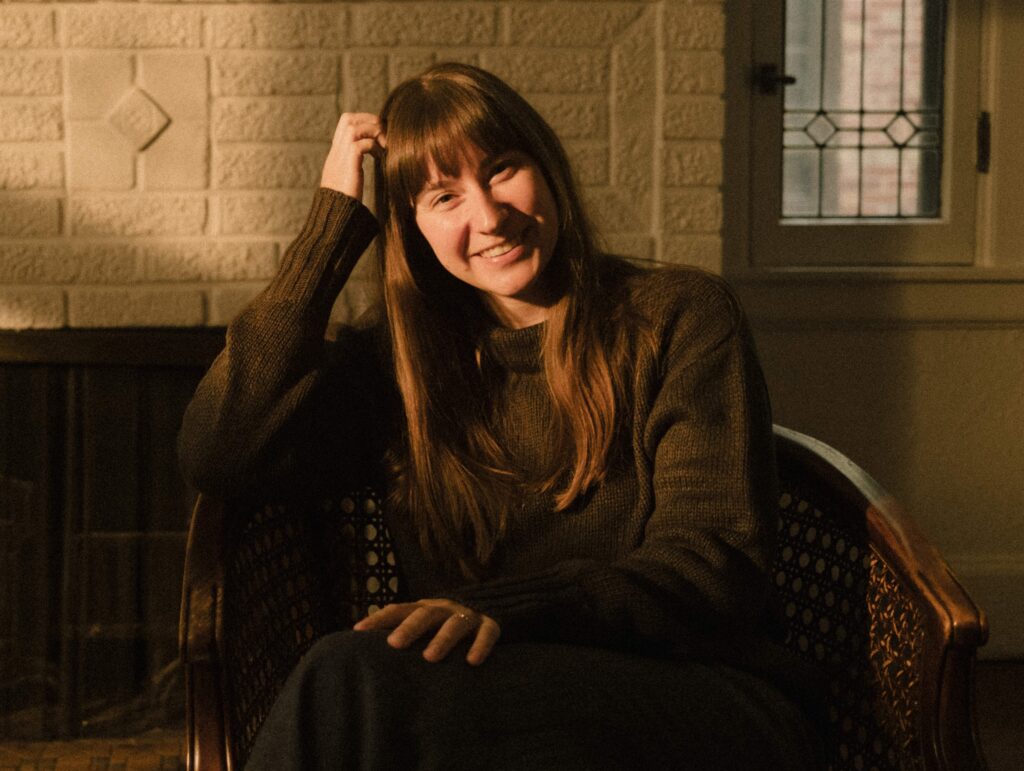
Name: Nicole Munson
Course: MPhil Conflict Resolution and Reconciliation, Trinity College, Belfast
Why did you apply for the fellowship? I chose to apply for the fellowship because I felt that, similar to the U.S., Britain has held a historic position in the perpetuation of conflict in the region and that requires a degree of ownership and recognition from the people/government of the UK. I felt that there would be a great deal to learn from this fellowship in terms of my own position/relation to the conflict and the ability to gain practical skills by participating in a project. I was excited for the opportunity to engage in other perspectives from the fellows and instructors.

Name: Ross Plowman
Course: BA History, University of Durham
Why did you apply for the fellowship programme? Three unconnected friends sent me the link for the application which, I believe, was a good sign. The focus of the Balfour Project on Britain’s complicity in the occupation appealed to me. As a history student, I have always been attracted to the history of British colonialism. I am eager to campaign for Palestinian human rights and learn more about the intricacies of British imperialism, the occupation and its history. I saw the fellowship programme as a great opportunity to approach the occupation of Palestine academically, as opposed to previous front line activism. I want to expand my knowledge and improve my communicative skill set so that I can engage in higher level debates.
Alumni 2021/22
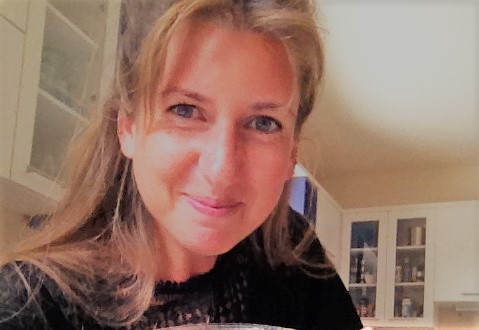
Name: Emily Abdeni-Holman
Course: MA in Theology, Ecology, and Ethics, with the Jesuits in Britain at the University of Roehampton.
Why did you apply for the fellowship? For me, being part of the Balfour Project means being part of a conversation and community paying attention to these issues in the context of recognising Britain’s historic responsibility for what has unfolded in the region, and as crucially its ongoing responsibility as a result. It’s an opportunity to listen, learn, and contribute.
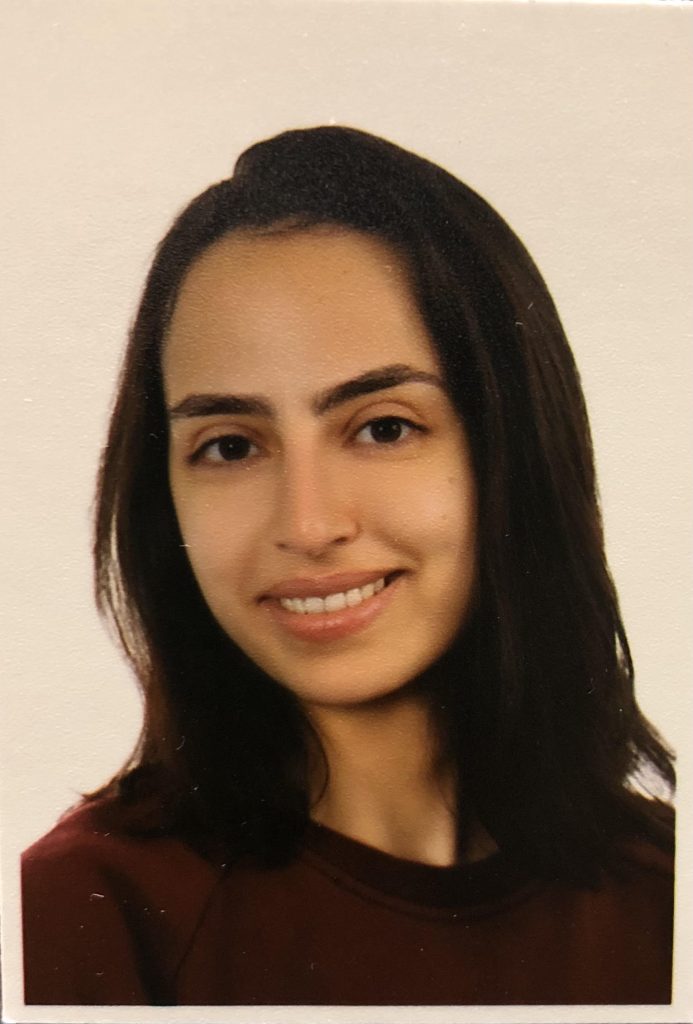
Name: Salma Altabari
Course: MA Comparative Literature at SOAS University of London.
What have you been doing since the 21/22 fellowship ended? I’m still working in the Further Education sector. I now teach A-Level English Literature, as well as continuing to teach ESOL.
Click here to read about Salma’s project.
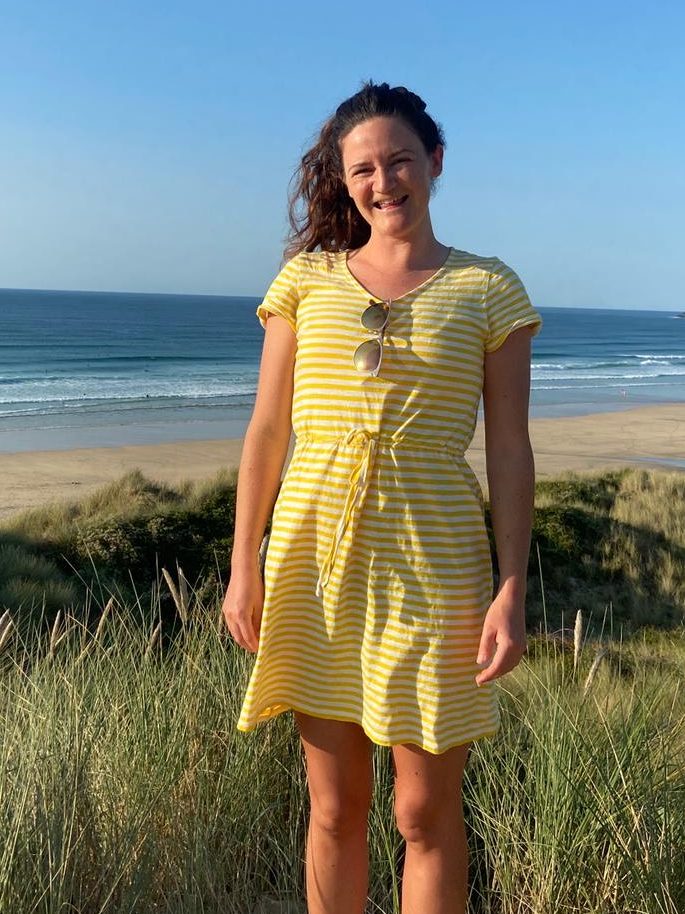
Name: Rebecca Argall
Course: MA in Law at Sussex University.
What have you been doing since the 21/22 fellowship ended? Since the end of the Fellowship, I’ve been between Cornwall and Brighton writing my dissertation on the International Criminal Court and their interventions in mid-conflict situations. In September I started a role at Garden Court Chambers connecting members of the public to the barristers there.
Click here to read about Rebecca’s project.
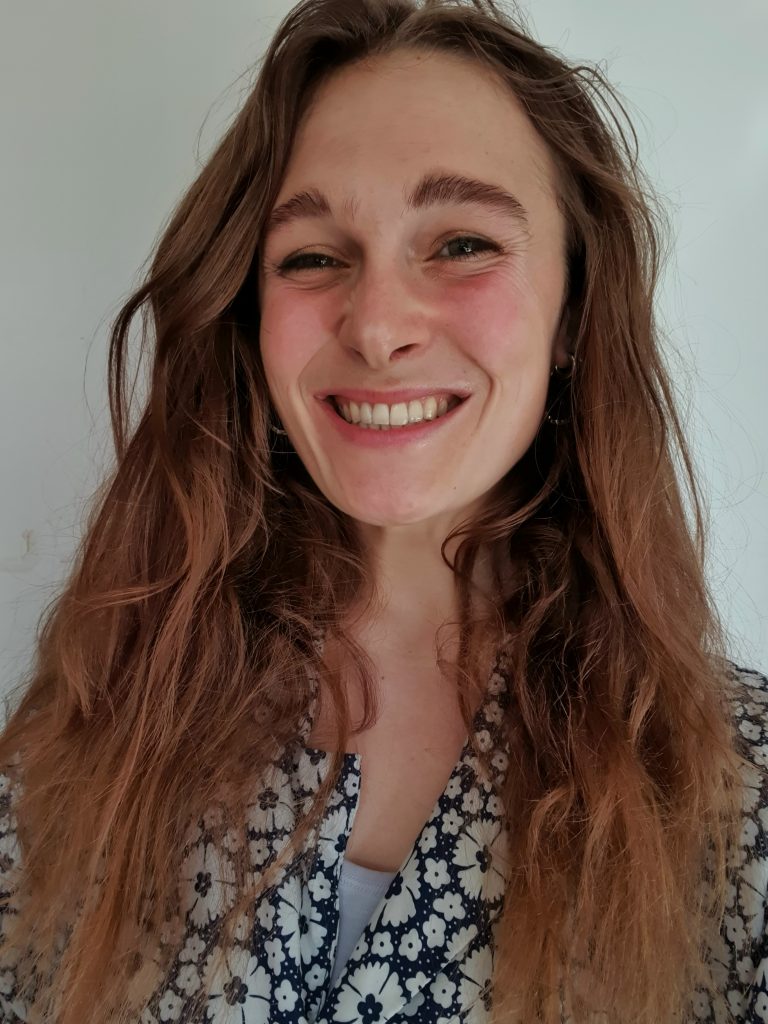
Name: Pyla Bird – Leakey
Course: LLM specialising in Public International Law at London School of Economics and Political Science.
What have you been doing since the 21/22 fellowship ended? I’m currently studying for the Bar at the Inns of Court College of Advocacy. I’m also working as an immigration paralegal and continuing to work towards a career in International Law.
Click here to read about Pyla’s project.
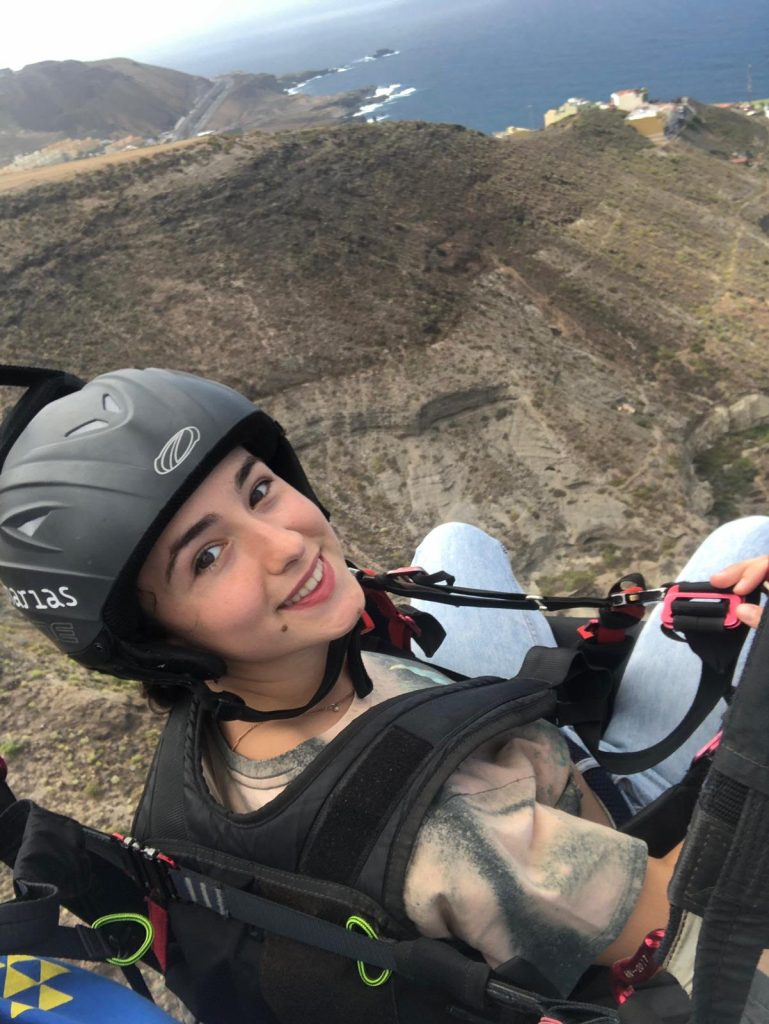
Name: Cecilia Cáceres Juan
Course: MSc Human Rights and Politics at the London School of Economics and Political Science.
What have you been doing since the 21/22 fellowship ended? I’ve been looking for remote jobs. In the meantime, I am volunteering with the feminist library in Brixton and with an online magazine and journal. I’ve also moved back home and been helping my mm with care work.
Click here to read about Cecilia’s project.
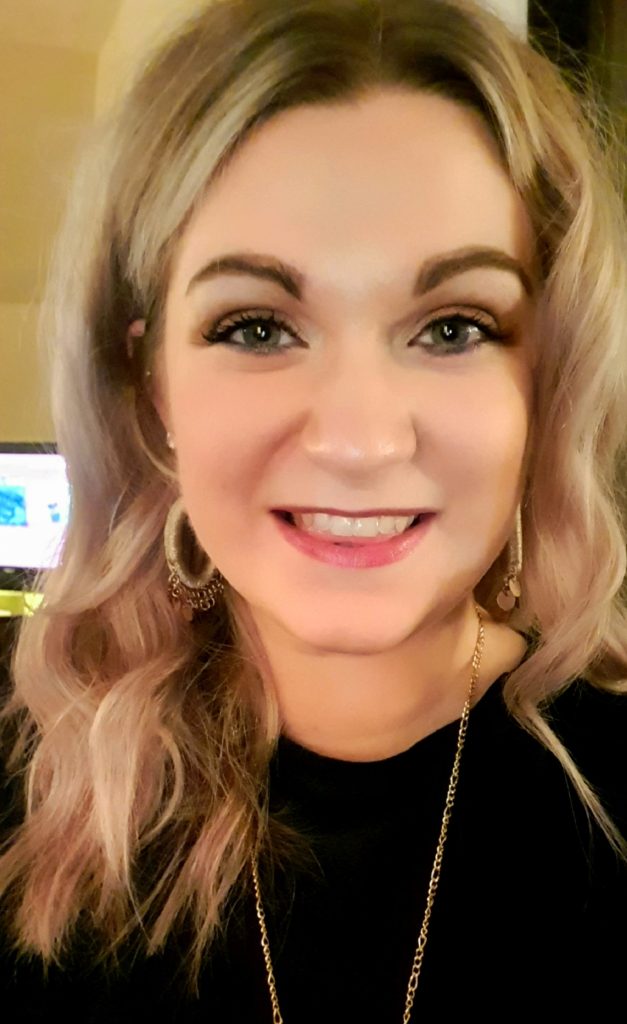
Name: Anne-Marie Clements
Course: MSc Human Rights and International Politics at the University of Glasgow.
What have you been doing since the 21/22 fellowship ended? Since the fellowship ended, I received my Master’s in Human Rights and International Politics with Distinction after writing my dissertation on solidarity and political tourism and pilgrimages in Palestine-Israel, which was inspired by my Fellowship project. I have secured employment with two organisations, one of which is a small human rights charity advocating on behalf of and alongside Palestinians. I am hoping to continue to raise awareness and action regarding Palestine from a faith perspective and to this end am currently taking part in a ‘Christian Peacebuilders’ course.
Click here to read about Anne-Marie’s project.

Name: Jean Franco
Course: Arabic and Persian at the University of Oxford.
What have you been doing since the 21/22 fellowship ended? I am now volunteering and starting internships in policy, while trying to put the skills I’ve learnt with the Balfour Project into practice in my journalism project FARSANG Journal. I’ll be travelling to South Asia to continue studying, and I will hopefully be spending some time in the Arab world to improve my Arabic.
Click here to read about Jean’s project.
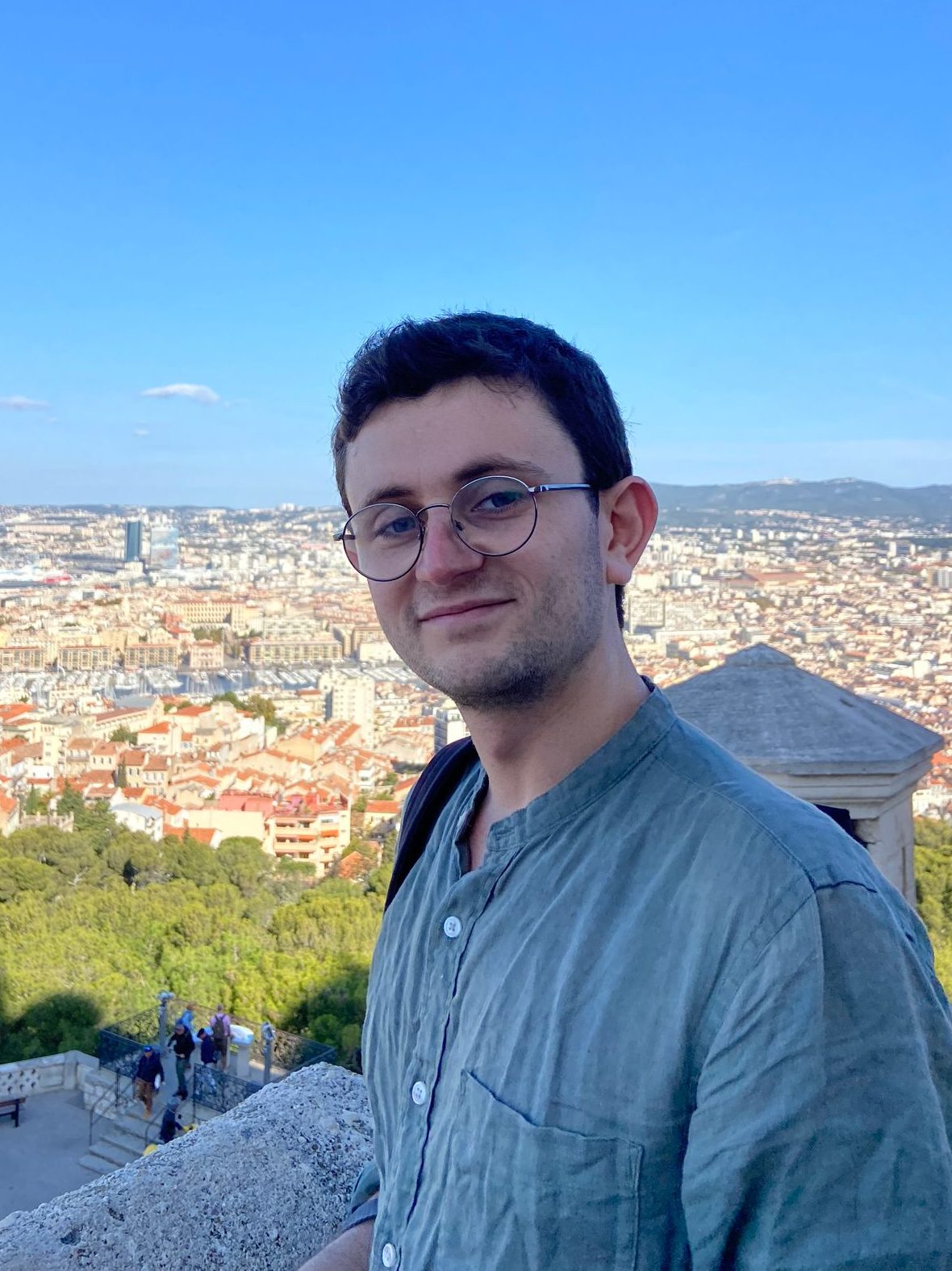
Name: Douglas Gerrard
Course: MSc Comparative Politics at the London School of Economics
What have you been doing since the 21/22 fellowship ended? I am currently completing my MSc, writing a thesis on the invisibility of the occupation Israeli political discourse.
Click here to read about Douglas’ project.
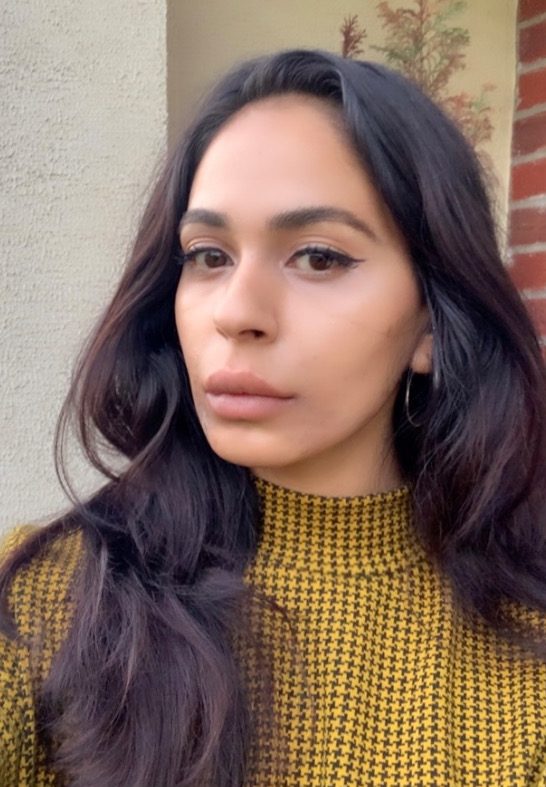
Name: Amber Khan
Course: Law, Business & Management MSc and Legal Practice Course at the University of Law.
What have you been doing since the 21/22 fellowship ended? I have started a two year training contract at Pinsent Masons to qualify as a solicitor. I also continue to sit on the board of imitating the dog, a theater company, as a non-executive director.
Click here to read about Amber’s project and to watch her webinar, click here.
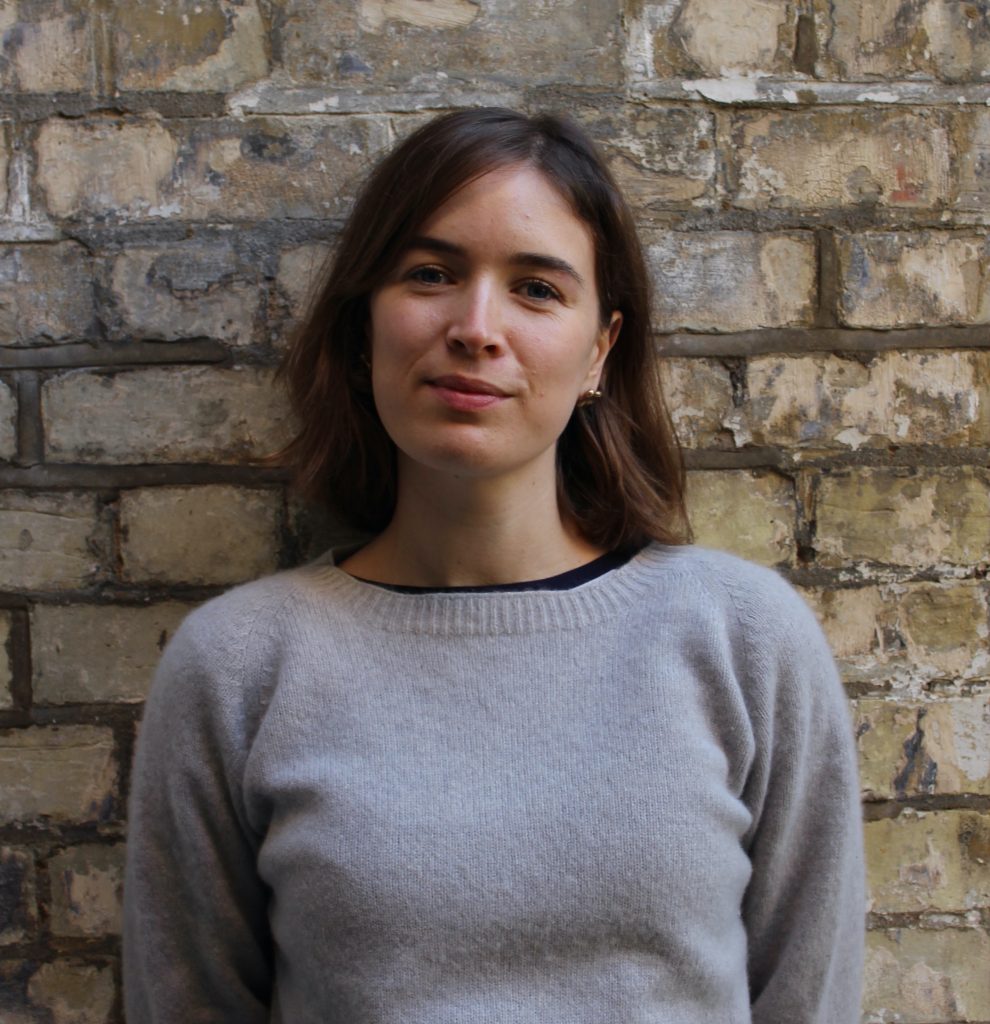
Name: Eibhlin Priestley
Course: Ph.D. in History at the University of Cambridge
What have you been doing since the 21/22 fellowship ended? I am now in the second year of my PhD in which I will conduct the majority of my fieldwork in Lebanon and Sudan. My fieldwork will be focused on visiting national and community archives, and interviewing residual members and descendants of the early twentieth century Syrian community in Sudan. I am continuing my involvement with the Balfour Project through my role as History Education Assistant.
Click here to read about Eibhlin’s project.
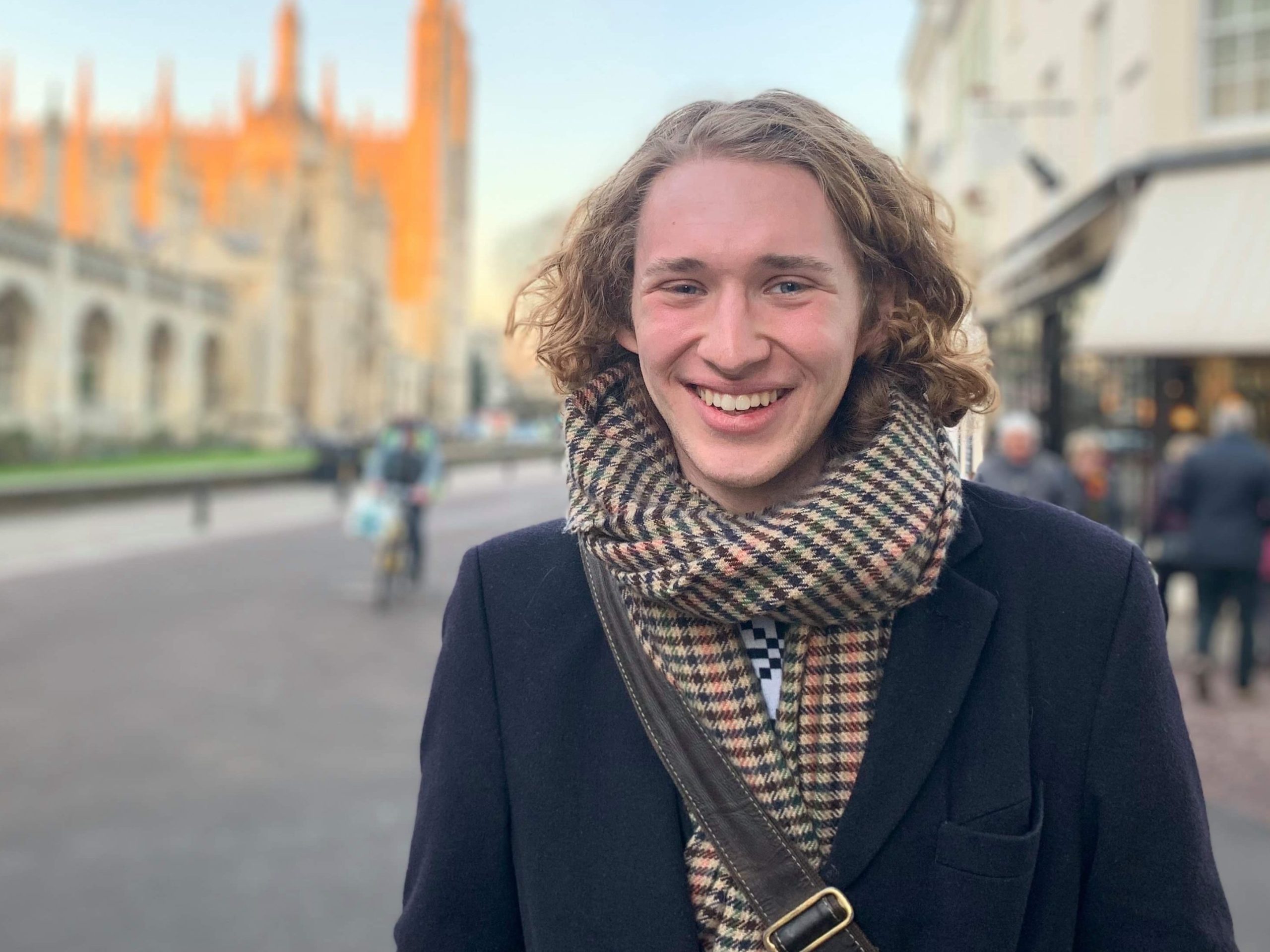
Name: Archie Williams
Course: MPhil Islamic Art and Architecture at the University of Oxford
What have you been doing since the 21/22 fellowship ended? After completing the fellowship, I travelled to India to complete internships with museums in Jaipur and Udaipur. Since my work for the Balfour Project explored how culture could be used to bridge sectarian divides, I was able to apply those skills when curating Islamic objects in these institutions. In India, as in Israel and Palestine, inclusive narratives about the past can be promoted through heritage, in order to encourage people to re-evaluate biases about other communities.
Click here to read about Archie’s project.
Alumni 2020/21

Name: Adam Abdalla
Course: Arabic and Politics at the University of Leeds
What have you been doing since the 20/21 fellowship ended? After completing the fellowship, I began an MPhil in Modern Middle Eastern Studies and Hebrew at the University of Oxford. I am also currently applying my experiences from the BP Fellowship in an editorial position at the Oxford Middle East Review journal, as well as working as a workshop facilitator with a HR educational organisation.
Click here to read about Adam’s project.
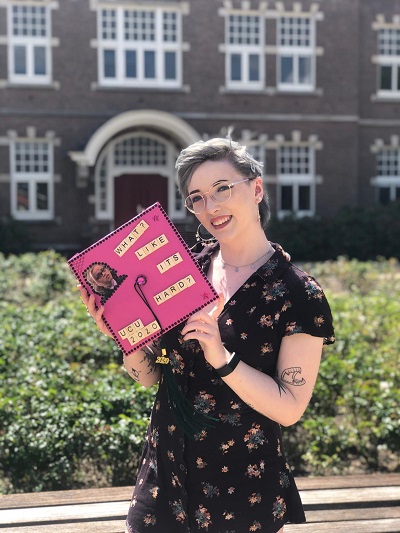
Name: Aimée-Stephanie Reid
Course: MSc Peace and Conflict Studies, Ulster University, Northern Ireland
What have you been doing since the 20/21 fellowship ended? I am currently working as a data engineer for Global Media and Entertainment in London.
Click here to read about Aimée-Stephanie’s project.
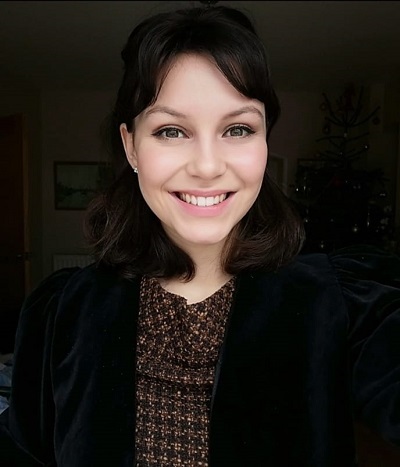
Name: Francesca Vawdrey
Course: Having specialised in Palestinian history during her undergraduate degree, Francesca is now a postgraduate in Modern Middle Eastern Studies at the University of Oxford.
What have you been doing since the 20/21 fellowship ended? Having finished the fellowship, I am continuing the second year of my master’s in Modern Middle Eastern Studies at Oxford. I am now writing my thesis on sexuality and war in Palestinian women’s literature, whilst continuing to take classes in Arabic and the political economy of the Middle East, alongside an editorial position at the Oxford Middle East Review.
Click here to read about Francesca’s project.
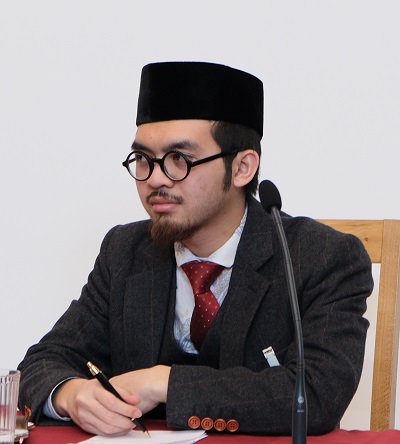
Name: Gilang Al Ghifari Lukman
Course: MPhil Modern Middle Eastern Studies, Advanced Arabic and Introductory Hebrew at University of Oxford.
What have you been doing since the 20/21 fellowship ended? I am currently working as a researcher at Control Risks, a political and security consulting firm headquartered in London. As the co-founder of Haifa Institute, I am regularly invited as a speaker in educational events on Israel-Palestine for an Indonesian audience.
Click here to read about Gilang’s project.

Name: Haneen Zeglam
Course: MPhil Modern Middle Eastern Studies at the University of Oxford
Why did you apply to the fellowship? I applied to the Fellowship because I really admire the Balfour Project Approach that highlights Britain’s responsibility to the future of Israel-Palestine, given its actions in the past. I also wanted to develop my own understanding through the various workshops and lectures, as well as getting to know the other fellows. Overall, it has been a massively rewarding programme so far and I would definitely encourage people to apply.
Click here to read about Haneen’s project.

Name: Jack Walton
Course: University of Exeter, Politics Philosophy and Economics
Israeli occupation.
What have you been doing since the 20/21 fellowship ended? I am currently studying for a primary PGCE at the University of Cambridge.
Click here to read about Jack’s project.
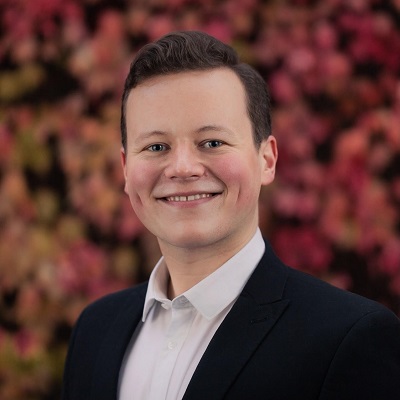
Name: Jordan Jones
Course: MSc Modern Middle Eastern Studies, University of Oxford
What have you been doing since the 20/21 fellowship ended? After the fellowship, I completed my MSc degree in Modern Middle Eastern Studies at the University of Oxford and I am now working as a researcher in the financial services sector. In my spare time, I continue to research issues relating to Israel-Palestine and advocate for a just resolution to the conflict.
Click here to read about Jordan’s project.
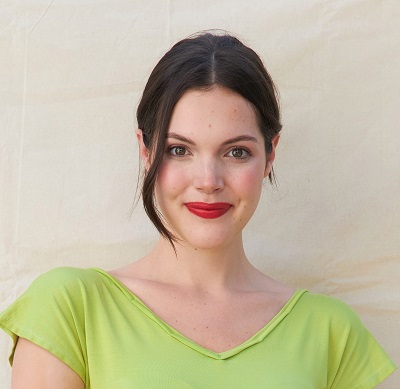
Name: Martha Scott-Cracknell
Course: Completed MSt in Study of Religions at the University of Oxford in July 2020 (studied BA Religion, Politics, and Society at University of Leeds).
What have you been doing since the 20/21 fellowship ended? I am continuing to work with the Balfour Project part time as a Programme’s Assistant, assisting in the recruiting and running of the 21/22 Fellowship Programme. I also work part-time as an analyst for the European Academy of Religion and Society.
Click here to read about Martha’s project.
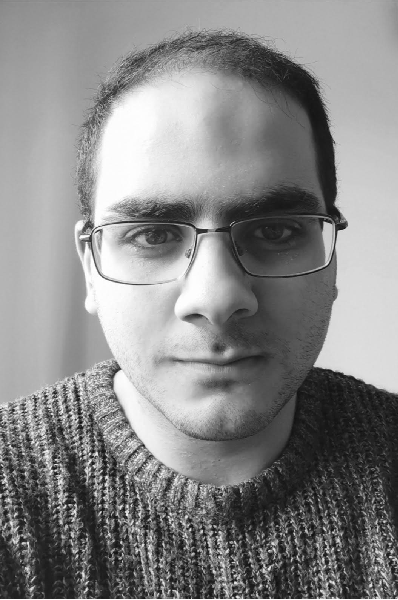
Name: Omar Sharif
Course: Cyber Security, CU London
What have you been doing since the 20/21 fellowship ended? I am in my final year completing a BSc at university and I am very active in creating awareness about the Israel Palestine conflict in the UK. One way I am doing this is through my involvement in organising events as a FODIP ambassador.
Click here to read about Omar’s project.

Name: Rosie Richards
Course: MA in Near and Middle Eastern Studies with Intensive Arabic at SOAS
What have you been doing since the 20/21 fellowship ended? Having graduated from her MA with a distinction, Rosie moved to Amman and has started working for a local NGO specialising in labour equality for Jordanian workers.
Click here to read about Rosie’s project.
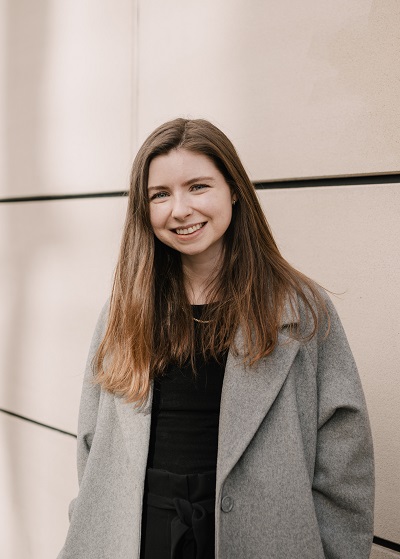
Name: Ruth Foster
Course: MTS, Harvard Divinity School. Previously studied Religious Studies at the University of Edinburgh.
Why did you apply to the fellowship? I applied to the Balfour Project in order to learn more about both Britain’s historic role in the region, and its responsibility in future peace-building efforts. In addition to this through workshops, lectures, and interactions with the other Fellows I wanted to engage with a wide range of perspectives and further nuance and challenge my own understanding of the region.
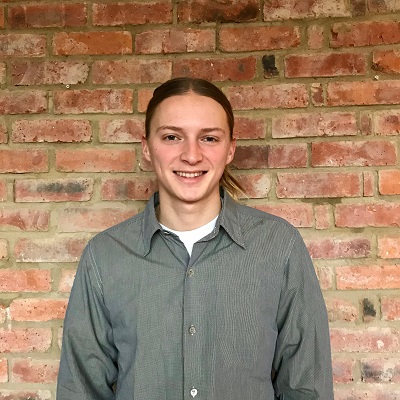
Name: Sam Lytton Cobbold
Course: MA Hons Arabic & Middle Eastern Studies with French, Edinburgh University
What have you been doing since the 20/21 fellowship ended? Having completed the fellowship, I am studying for a MSc in Modern Middle Eastern Studies at St Antony’s college, University of Oxford, focusing on Politics and particularly Islam’s role in regional politics. Specifically, I am interested in the role of Islam in resistance politics, paying close attention to the case studies of Hamas and Hezbollah, and their resistance to Israel.
Click here to read about Sam’s project.
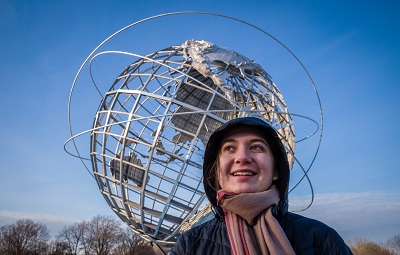
Name: Sarah Chaya Smith
Course: MSc Politics of Conflict, Rights and Justice at SOAS, University of London. Previously studied Social Anthropology at the University of Edinburgh (2016-2020).
nd oppression.
What have you been doing since the 20/21 fellowship ended? I now work in UK Parliament as a Communications Officer, supporting the work of an MP in their day-to-day parliamentary work and constituency duties.
Click here to read about Sarah’s project.
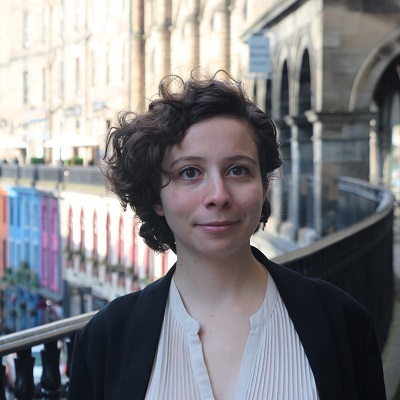
Name: Stav Salpeter
Course: Norwegian-Israeli currently studying for an MA (Hons) in International Relations and International Law at the University of Edinburgh. She co-founded the Palestinian-Israeli Dialogue Society, an award-winning organisation with branches across the UK and Canada.
What have you been doing since the 20/21 fellowship ended? I am currently completing my MA (Hons) in International Relations and International Law at the University of Edinburgh where I direct the EIJI International Law Clinic.”
Click here to read about Stav’s project.
Alumni 2019/20

Eleonor Lefvert is a masters student in Gender and International Law at SOAS, University of London, where she is specialising in gendered dimensions of security and armed conflict. Before moving to London, Eleonor worked in Ramallah, Palestine, as an intern and consultant at a women’s rights organisation in their international advocacy team.
“Growing up with a grandfather who was Sten Andersson, the former Swedish minister of foreign affairs, deeply engaged in diplomacy with both parties, conversations about Israel/Palestine have always been present so this issue lies close to my heart.”
“These conversations influenced my commitment for human rights in general and a peaceful process between Israel/Palestine in particular.
“As a Peace Advocacy Fellow at the Balfour Project, I am focused on researching the Swedish recognition of Palestine, using this as a case study to inform a future British recognition of Palestine. I hope my research can give insights on key factors that led to Swedish recognition, and that these can also facilitate the path for future British recognition of Palestine alongside Israel.”
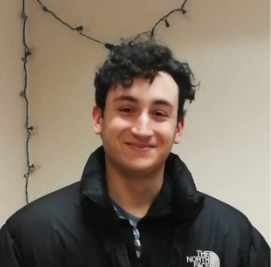
Zac Lewis is a final year History and Politics student at the University of Warwick. He has a keen interest in politics and justice, both locally and internationally, and the importance of history to understanding contemporary phenomena.
As a British Jew, his project as part of the fellowship is focusing on the British Jewish community and their approaches towards British recognition of Palestine alongside Israel, as part of a two state solution, which most community organisations support.
“I am a proud British Jew, and my experience being brought up in this community has attuned me to the varying contours of the Israeli-Palestinian conflict and my relationship to it.
“This issue, though, is more than a concern for only those with ties of kinship to the region. Britain’s Balfour Declaration over 100 years ago, its mandate over Palestine, and continuing strategic relationships in the region, should ensure its importance to all British people. Britain has a historic responsibility, both moral and arguably legal, towards ensuring a just settlement to this conflict – and the Balfour Project is on the frontline of getting this message out there.
“My personal project focuses inwards on how to build productive relationships within my own community on Israel-Palestine – especially with groups and individuals who work specifically in this area. It is a project that draws from my own upbringing and experience to hopefully further the cause of justice.”
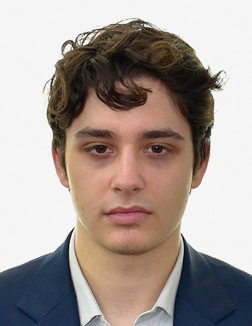
Alexandre Lowe is a final year International Politics student at City, University of London. As a dual nationality French/ British holder with a very international background and enthusiastic about all things related to global politics, he wishes to breach the barrier between the academic world and the practical world by applying some of his knowledge in International relations, security, and conflict resolution.
His project as part of the fellowship is focusing on understanding and extricating the issue of Israel-Palestine from world politics, as well as researching possible relationships with other organisations involved with the conflict, specifically potential European allies we may be able to interact with both within and without the framework of the EU.
“I am interested in understanding the controversial ability of the conflict of remaining at the forefront of the world-stage and emotionally poignant for many. Additionally, the building of additional fruitful relationships with international partners can only aid in expanding the scope of awareness building that the Balfour Project strives for. The strengthening of these relationships within the EU can serve to form a stronger foundation for the challenges that lie ahead for all of us.”
“While there is no point denying that things may be looking grim, the global rise of populist politics as well as the looming menace of climate change are bound to alter the political realities for everyone. These new chaotic times will doubtlessly bring new opportunities and thus it is even more important that we strive to seek and understand all points of views, both old and new.”

Ed Pickthall is a recent graduate in Politics and International Relations from SOAS, University of London. His decision to study at SOAS was motivated by a desire to study the world through a less Western-centric lens. He has a keen interest in politics, with a focus on the Middle East and Britain’s historical relationship with the region, and the role that identity plays in international relations and the emergence of conflict.
He has spent time teaching English in the West Bank and has worked as a researcher for Parallel Histories, an interactive digital resource which seeks to teach both sides of disputed histories so students can better understand conflict. His project as part of the fellowship focuses on conservative arguments for recognition.
“A lesson I learnt living in the West Bank is that despite the 100 years which has passed since the Balfour Declaration it is still a fresh wound in the Palestinian national psyche – and a topic that will be brought up whenever one mentions they are British. In spite of this, few in Britain know of our historic role in the conflict and so it is important to raise awareness of Britain’s moral responsibility to those in the region and the symbolic power that recognition would bring.”
“My project focuses on the conservative case for the UK recognising Palestine. Following the 2019 election it became obvious that for there to be meaningful change in Britain’s position on Israel/Palestine there needs to be a shift in conservative opinion on the issue. However, I believe that it is also important that this issue should not just be seen as one for the Left to deal with. It is important that Britain lives up to its historic and moral responsibility towards ensuring a just settlement for the Israeli and Palestinian people, and that this should be cross-partisan.”
